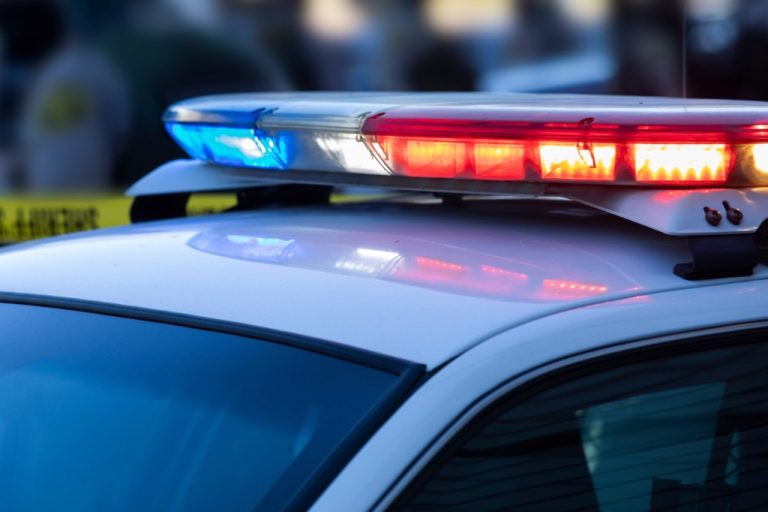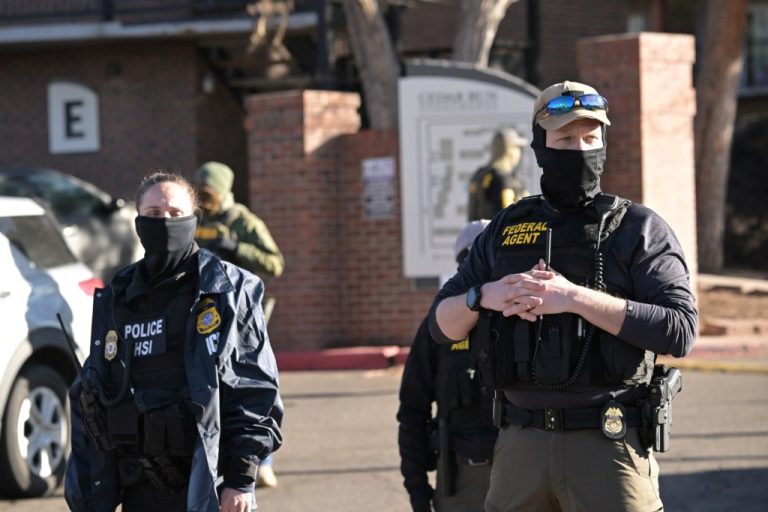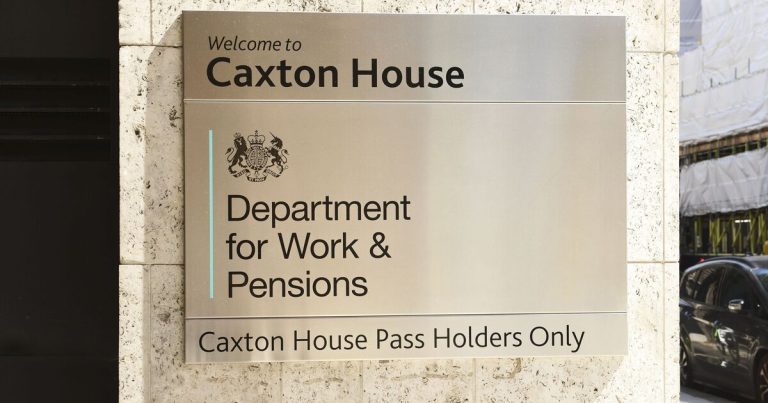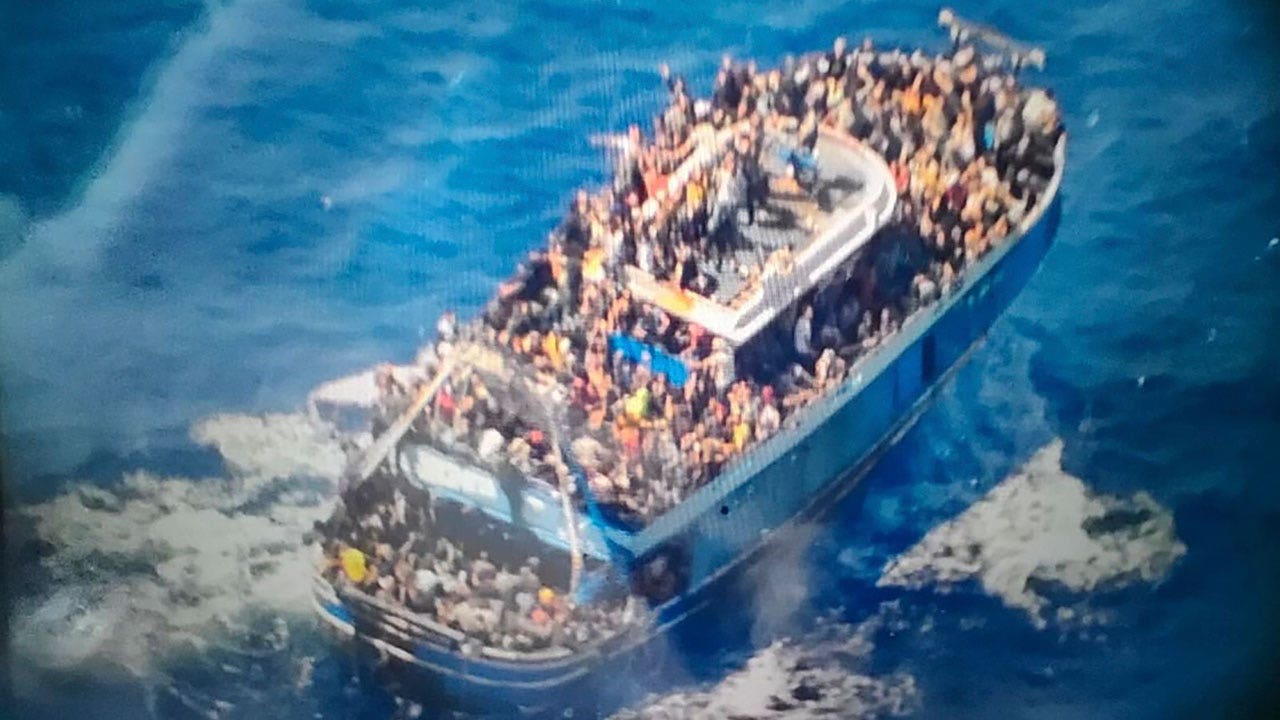
Two leading international human rights groups on Thursday accused Greek authorities of failing to properly investigate the circumstances around a migrant boat sinking six months ago that killed hundreds.
In a joint report, Amnesty International and Human Rights Watch said “little meaningful progress” has been made in examining allegations by some survivors that the rescue mission was delayed and mishandled.
Up to 750 people were believed to have been crammed into the “Adriana,” a rusty fishing trawler that sank on June 14 southwest of the Greek mainland while traveling from Libya to Italy.
GREECE TO INVESTIGATE HANDLING OF MASS-CASUALTY MIGRANT BOAT WRECK
Following the sinking, 104 people were rescued — mostly migrants from Syria, Pakistan, and Egypt — and 82 bodies were recovered.
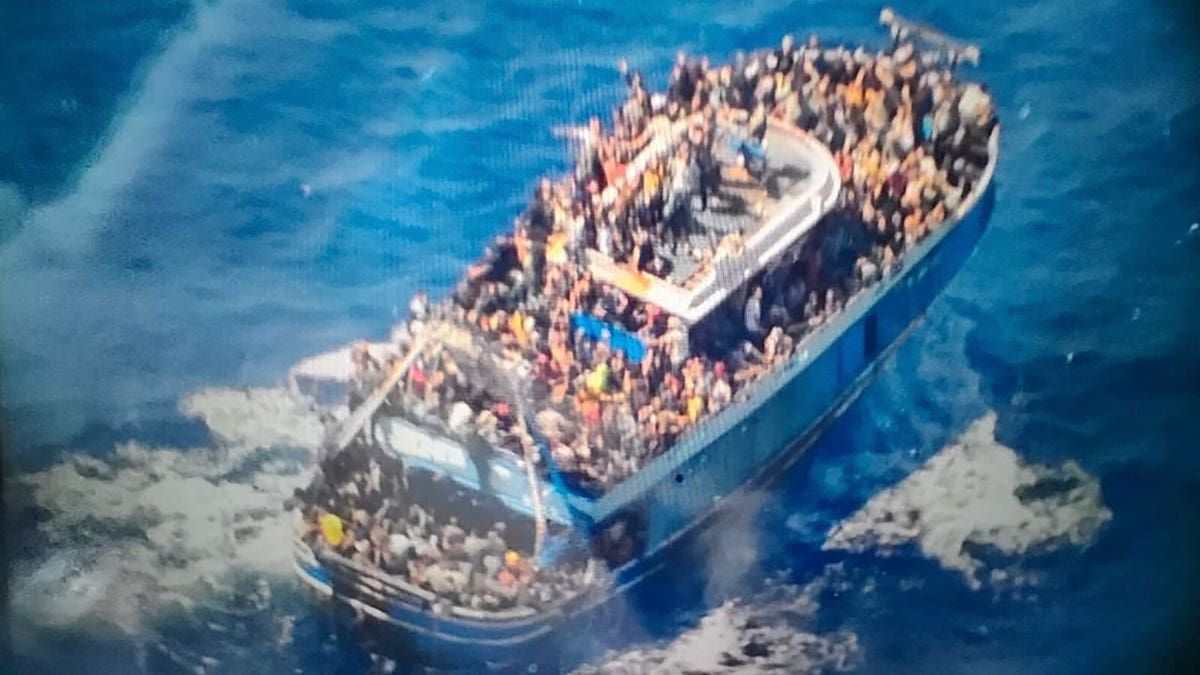
Scores of people sit on a battered fishing boat that later capsized and sank off southern Greece. Two human rights groups are accusing Greek authorities of failing to properly investigate the circumstances around the boat sinking six months ago that killed hundreds. (Hellenic Coast Guard via AP, File)
The two rights groups said they interviewed 21 survivors and five relatives of people still missing as well as representatives of the Greek coast guard and the Greek police.
“The survivors and the families of the missing and dead deserve a full accounting of what happened,” Judith Sunderland, an associate director at Human Rights Watch for Europe and central Asia, told the Associated Press.
RESCUE SHIPS SEARCH FOR HUNDREDS OF MIGRANTS OFF COAST OF GREECE FOLLOWING SHIPWRECK
“Our research confirms that a catalog of failures led to the fatal shipwreck,” Sunderland said, adding that the vessel was clearly “overcrowded, unseaworthy, and in danger” hours before it capsized.
Some of the survivors have disputed the official Greek account that people on the trawler refused offers of assistance.
Based on the interviews, Sunderland said Greek authorities had received warnings from Frontex and the crew of passing ships that the trawler was in potential danger of sinking as well as during calls for help made by passengers directly to Greek authorities and to charities.
The allegations triggered the launch of an independent investigation last month by Greece’s state ombudsman. It said the coast guard failed to conduct its own disciplinary investigation into the agency’s response June 14. In September, 40 survivors initiated legal action against Greek authorities. “It is a mass grave in the sea, 40 kilometers south of the Greek mainland – I don’t want to live in that kind of country,” Thanasis Kampagiannis, a lawyer representing the plaintiffs said. “I find it startling that after all these months, we still don’t know exactly what happened and how many people died. I feel ashamed that we still describe the number of deaths as ‘about 600’,” he said.
18 MIGRANTS BELIEVED DEAD IN GREECE’S WILDFIRE-RAVAGED NORTHEAST
The Greek coast guard, responding to the report, denied the allegations that its had acted in violation of international safety practices, noting that it had carried out more than 6,000 rescue operations since 2015 and rescued nearly 250,000 people.
“The officers of the Greek coast guard … operate with a high sense of responsibility, professionalism and absolute respect for human life and human rights,” the agency said.
Government officials have described criticism of the coast guard as unfair and maintain that blame should squarely fall on smugglers who cram migrants onto unseaworthy boats. The coast guard has denied claims made by some survivors that it made a failed attempt to tow the vessel before it sank.
Shipwreck survivor Rana Husnain, from Pakistan, said he made the journey to Europe with his cousin who was lost in the shipwreck, but has not heard whether he is among the bodies recovered. “When the boat capsized I fell into the water,” Husnain told the AP. “I don’t know how to swim… I held a (large) plastic water bottle with one arm. I was in the sea for 15 minutes… I survived, my cousin was lost.”


